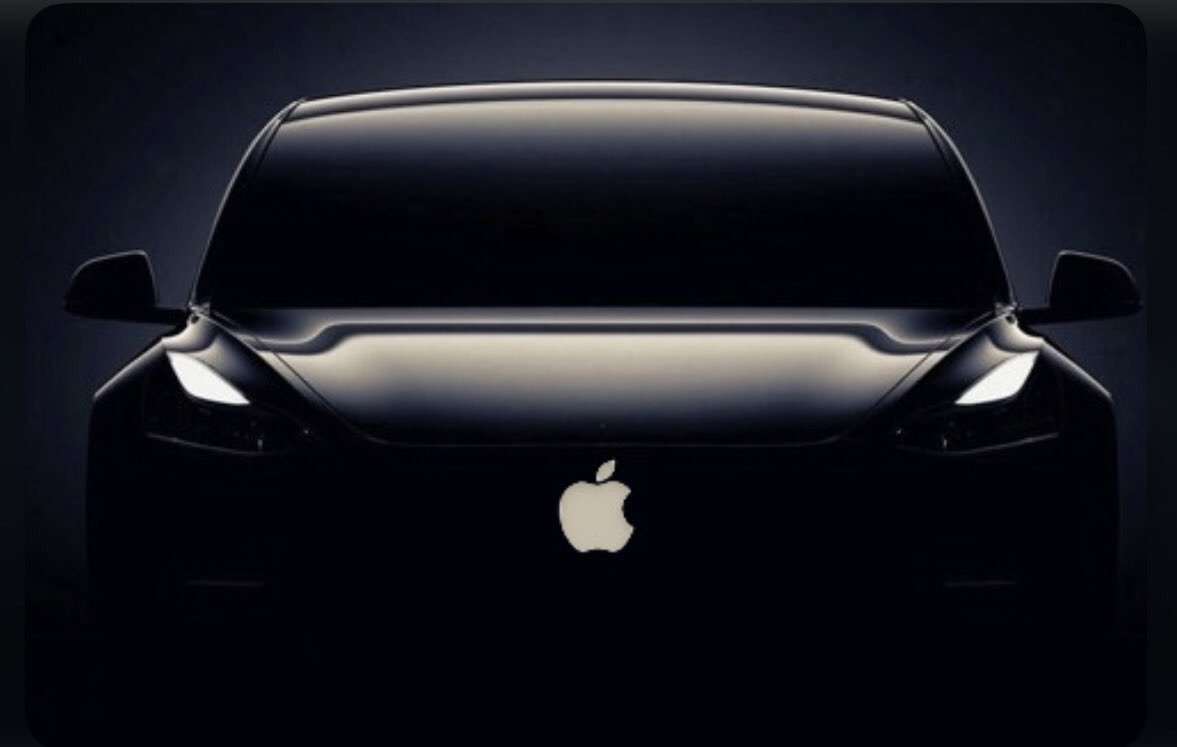Apple Car project loses another executive six months after hire
An automotive engineer who worked on the Apple Car team has left the Cupertino tech giant just days over six months after the company hired him.

Apple Car illustration
C.J. Moore has apparently left the iPhone maker to work at autonomous vehicle technology firm Luminar. Moore will be in charge of the company's global software development team, Luminar said in a press release.
Prior to leaving Apple, he served as the company's director of autonomous systems. Before joining the Cupertino firm in November 2021, he worked at Tesla.
Apple has long been rumored to be developing some type of autonomous vehicular technology, though rumors have changed between underlying software systems and an actual production car.
Turnover on the secretive endeavor, dubbed Project Titan, has been high. Apple's car team has reportedly seen shakeups, layoffs, changes in direction, and other issues since it started in 2014. Kevin Lynch, a veteran software executive of Apple, is the latest leader of the project.
Current rumors suggest that Apple is aiming to make a full electric vehicle, potentially slated for a launch sometime in the 2020s. The vehicle may not feature a steering wheel or traditional driving instruments, and could instead focus on fully autonomous driving.
Read on AppleInsider

Apple Car illustration
C.J. Moore has apparently left the iPhone maker to work at autonomous vehicle technology firm Luminar. Moore will be in charge of the company's global software development team, Luminar said in a press release.
Prior to leaving Apple, he served as the company's director of autonomous systems. Before joining the Cupertino firm in November 2021, he worked at Tesla.
Apple has long been rumored to be developing some type of autonomous vehicular technology, though rumors have changed between underlying software systems and an actual production car.
Turnover on the secretive endeavor, dubbed Project Titan, has been high. Apple's car team has reportedly seen shakeups, layoffs, changes in direction, and other issues since it started in 2014. Kevin Lynch, a veteran software executive of Apple, is the latest leader of the project.
Current rumors suggest that Apple is aiming to make a full electric vehicle, potentially slated for a launch sometime in the 2020s. The vehicle may not feature a steering wheel or traditional driving instruments, and could instead focus on fully autonomous driving.
Read on AppleInsider

Comments
Do or do not. There is no try.
Note that CJ Moore is taking a VP position at Luminar which likely means more authority and responsibility at a smaller company.
My guess is that he was unhappy with his role at Apple and started looking for new employment a few months after starting at Apple. He didn't even bother sticking with it for a year so it probably tossed away all of his RSUs before any of them vested.
A manager? -- not so much.
I will speak about autonomous driving research efforts in the USA since that's the market I am most familiar with.
Waymo -- a division of Alphabet -- put prototype vehicles (with DMV permission) on the streets back in 2012; back then they were identified as "Google Self-Driving Car." At one point, they produced their own prototype vehicles, a cute bubble car with a joystick for the human operator that occasionally intervened.
Waymo was followed by a slew other companies. Here in the USA, the primary concentration of the efforts are in the Mountain View and Sunnyvale area. There are probably thirty companies doing research on autonomous vehicles there and many of them have permission from the California DMV to test their vehicles on public roads (you can download the monthly reports from the DMV website) including pretty much all of the big traditional vehicle manufacturers. Even Ducati had a research office in Mountain View for a time.
Most of these companies are in stealth mode but there are some that proudly emblazon their affiliation on the vehicles: Waymo, drive.ai (since acquired), Nuro, Toyota Research Institute.
The autonomous cars being tested in California have a better safety record than human drivers despite being tested in initially very limited situations. The breadth of that testing has increased over the past decade. They aren't just being operated on sunny days anymore. Hell, I'd rather be behind an autonomous test vehicle than a snot-nosed 22-year old driving with their phone on TikTok or some 45-year old soccer mom distracted by Facebook.
Note that many individual features: self-parking, emergency braking due to obstacles, lane guidance, etc. have already been deployed in consumer vehicles. It's not like all of these things need to be re-invented from scratch.
Currently Waymo commercially operates an autonomous taxi service in Phoenix (Arizona).
If you place an online order from a particular 7-Eleven in Mountain View, your order may be delivered by a Nuro autonomous vehicle. (Unsurprisingly alcohol and tobacco products are not eligible.) Nuro's vehicles are being tested in limited commercial (business-to-business) deliveries as well.
Just because you don't see autonomous vehicles driving around in your neighborhood doesn't mean they're not around elsewhere. And I assure you that Mountain View-Sunnyvale isn't the only location on the planet where this technology is being trialed. If I recall correctly, Singapore is also a major market for testing this technology.
Autonomous cars won't spring up like weeds overnight but more of them are on the road every day even if there isn't one directly in front of you. We are still some years away from seeing an autonomous vehicle parked in your neighbor's driveway or your building's parking garage but for sure commercial usage has already commenced.
Personally, I think Apple‘s supposed attention to autonomous vehicles is missing the mark. I would much rather they focus on vehicles that drivers want to interact with. Apple’s industrial designers have an opportunity to radically rethink the controls of automobiles. I see an Apple Car handing the driver more control over the vehicle and not less.